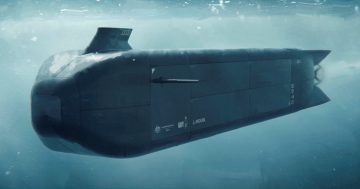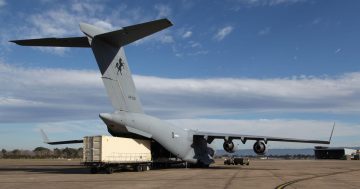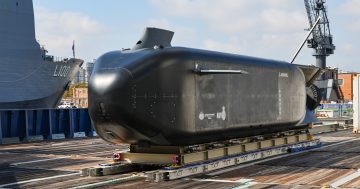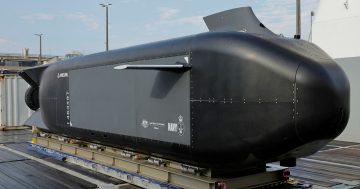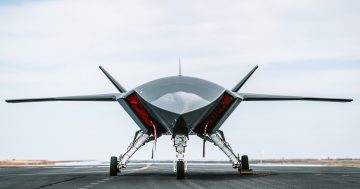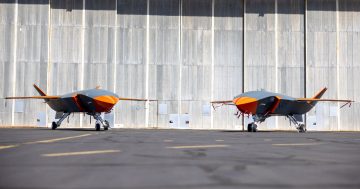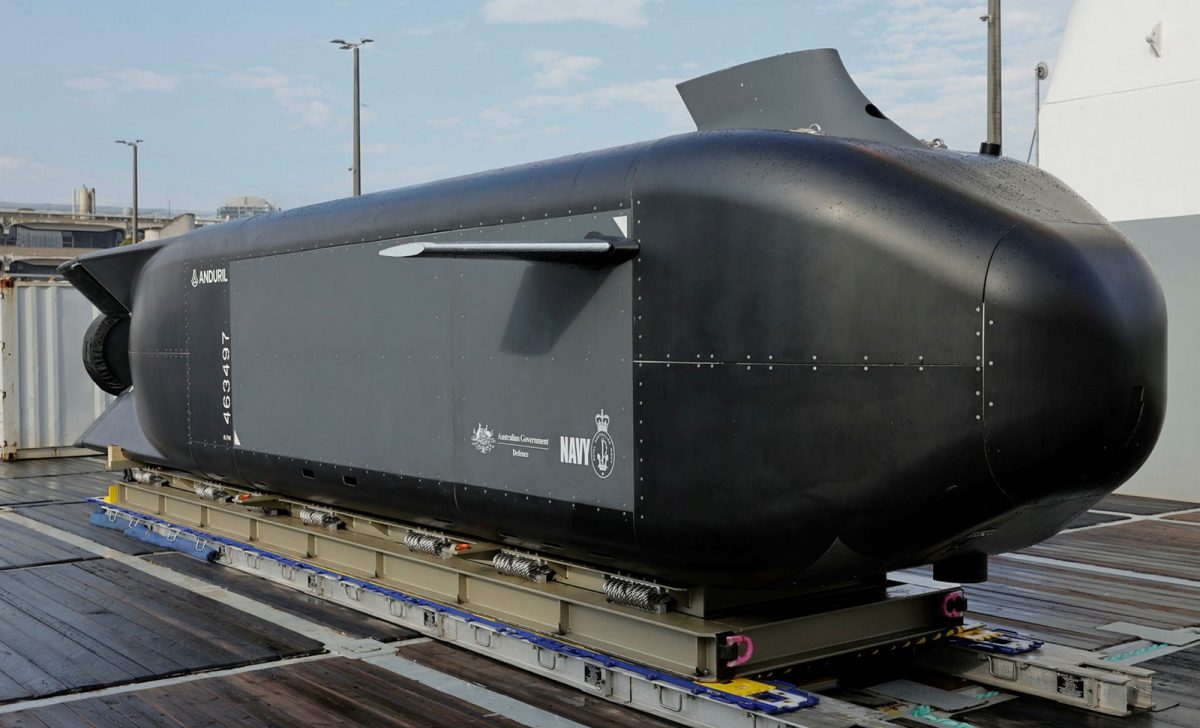
The Ghost Sharlk XL-AUV is about the size of a bus and can perform long-range autonomous reconnaissance and strike missions. Photo: ADF.
The Federal Government has announced it will inject additional funding into a program to develop an uncrewed underwater vehicle for the Royal Australian Navy.
The first Ghost Shark extra-large autonomous underwater vehicle (XL-AUV) was unveiled in April at Sydney’s Garden Island naval base, just 18 months after the program was given the go-ahead.
The program is seeking to rapidly develop a bus-sized uncrewed submarine for the RAN and is a co-funded development between the Commonwealth’s Defence Science and Technology (DST) Organisation through its new Advanced Strategic Capabilities Accelerator (ASCA) program, and manufacturer Anduril Australia.
ASCA is also working with the RAN to prove the design and to develop concepts of operation prior to the XL-AUV’s service introduction.
The Ghost Shark is designed to be a cost-effective long-range autonomous vehicle than can provide persistent intelligence, surveillance, reconnaissance (ISR) and strike undersea capability.
The additional funding will see the development program accelerated. With the RAN’s six Collins-class submarines scheduled to undergo a prolonged Life Of Type Extension (LOTE) program from 2026, and the first of up to five Virginia-class nuclear-powered submarines not due before 2032, the Ghost Shark will fill a widening undersea capability gap.
The additional funding to the tune of $20.1 million each from the Commonwealth and from Anduril Australia will allow the company to scale its sovereign supply chain and build infrastructure to transition the Ghost Shark program from prototype development to production. Currently, 42 Australian companies are part of the Ghost Shark supply chain.
Anduril will construct a manufacturing facility – likely in Sydney – with capacity to produce Ghost Sharks for Australia and for international partners, as well as a commercial variant for scientific and other research purposes. The first production Ghost Shark is scheduled to be delivered by the end of 2025.
Minister for Defence Industry and Capability Delivery Pat Conroy said the Ghost Shark early works contract was an example of how the government was working with Australian industry to accelerate the delivery of sovereign capabilities.
“Defence is incentivising industry to make substantial capital investments,” he said.
“Contracts like this help scale Australian industrial capacity and deliver sophisticated defence capability, while bringing more investment and jobs into the Australian economy.
“The Ghost Shark program exemplifies how Australia’s defence industry can develop cutting-edge technology and deliver at pace.”
Chief Defence Scientist Professor Tanya Monro said Ghost Shark was specifically designed for manufacturability, mass production and flexibility to create supply chain resilience.
“[DST] has contributed project management and trusted autonomy skills to ensure scalable success,” she said. “This shows what can be achieved by focused collaborative development and co-investment.”
The Head of ASCA Professor Emily Hilder said the co-funded early works contract between Anduril Australia and Defence would accelerate production readiness of the Ghost Shark program as well as scale the Australian supply chain at an unprecedented pace.
“Ghost Shark is a powerful example of how ASCA can help accelerate capability to our warfighters, bringing together parts of the Defence enterprise as well as Anduril Australia, to help deliver an asymmetric advantage.”


